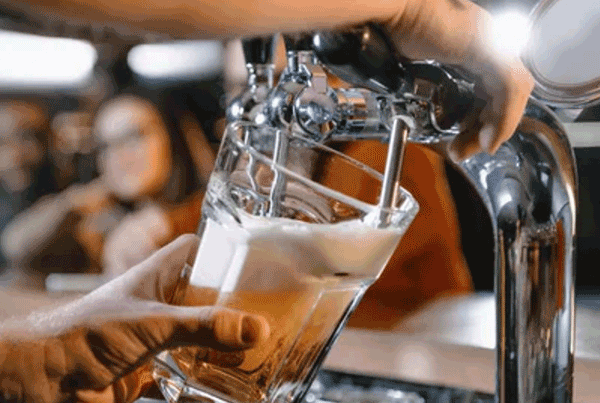Aussies set to pay $15 a pint at the local pub as excise rises

A $15 pint of beer seems outrageous, but that is exactly what Aussies might be paying for their favourite ale with the latest alcohol excise rise due next month.
The excise is due to be implemented on February 1 and will be around two to three per cent.
Australia currently has the third-highest tax on beer and spirits in the world and with the next rise, punters will be paying almost three times more than Tokyo and Balinese beer drinkers.
In Berlin, a beer will set you back $6.83 and in Athens it is $8.66.
It seems ordinary Aussies are now being priced out of the beer market.
The tax is adjusted according to the consumer price index, which is affected by inflation. Due to inflation, Aussies have paid more than 12.5% for the beer in under two years.
Given the exorbitant cost, Prime Minister Anthony Albanese has been called upon to freeze the tax.
If not, hospitality providers will pay $60 per litre of pure alcohol. A pint will rise by 90 cents and a carton of beer will cost on average $55, including a $20 levy and GST.
Pubs are currently paying $78 in tax on a keg of beer. That is likely to rise to $80.
Spirit drinkers will also suffer, with cocktails likely to cost over $24.
Industry group Spirits and Cocktails Australia (SCA) chief executive Greg Holland said the 'bi-annual indexation continues to fuel inflation and cost of living pressures'.
“The federal government's own data is starting to bear out the folly of this outdated excise regime.
“Despite a record high tax, the December budget update revealed a projected $170 million shortfall in revenue from spirits excise in 2023-24.”
Holland said spirits are becoming unaffordable for ordinary Australians.
“Continued increases would be nonsensical; consumers, manufacturers and the Government all lose out to this inefficient tax.”
Holland’s thoughts were backed by Australian Distillers Association CEO Paul McLeay.
“The policy settings were made 40 years ago in 1984,' he told Daily Mail Australia.
Jonathan Jackson, 23rd January 2024







